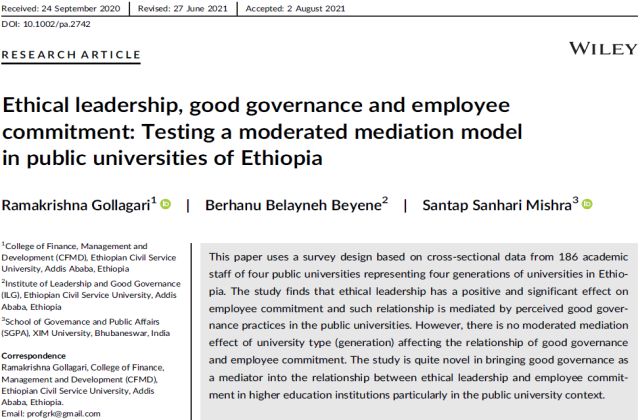” Ethical leadership, good governance and employee commitment: Testing a moderated mediation model
in public universities of Ethiopia…”
INTRODUCTION
Ethics is a moral principle that decides how a person consistently behaves, when not being watched by others. Since ancient times, ethics has caught the fascination of philosophers and the general public. Coming from an old Greek word “ethos,” it basically focuses on man’s virtuous life (Bauman, 2018). Every human being has certain virtues and it is expected to be reflected in their behavior. Verse 21 of chapter 3 of Bhagavad Gita (an ancient Hindu literature) tells whatsoever a highly placed person does; the same is done by others. It means people follow the examples set by their leaders. The modern “ethical leadership” has a direct source of this virtue ethics as advocated by Greek philosophers like Plato and Aristotle (Bauman, 2017; Sison et al., 2012) and Bauman (2018) confirmed ethical leadership as synonymous with virtuous leader. Plato’s idea of philosopher-king is a virtuous leader who is well-educated and trained. Based on the education system and socio-cultural context of each country, the degree of endorsement of ethical leadership aspects varies considerably (Martinet al., 2009).

